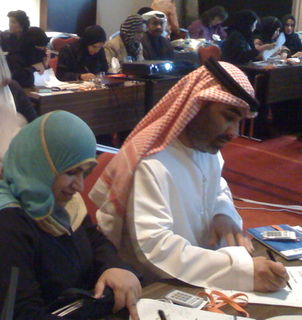As a 21-year-old rookie teacher I was pleased to find out I could finally be the most popular guy in class. I read all the books and crafted the "know-it-all" lecture that informed and entertained. It took me a few years to realize that my goal wasn't to be the smartest person in the room, but to create learning environments that helped my students discover their knowledge and skills.
I was reminded of my teaching transition as I read a recent essay by Mark Edmundson, "Geek Lessons – Why Good Teaching Will Never Be Fashionable." It's from the New York Times Magazine's college teaching issue (9/21/08), but educators of all levels may enjoy. Edmundson writes:
Because really good teaching is about not seeing the world the way that everyone else does. Teaching is about being what people are now prone to call “counterintuitive” but to the teacher means simply being honest. The historian sees the election not through the latest news blast but in the context of presidential politics from George Washington to the present. The biologist sees a natural world that’s not calmly picturesque but a jostling, striving, evolving contest of creatures in quest of reproduction and survival.
….Good teachers perceive the world in alternative terms, and they push their students to test out these new, potentially enriching perspectives. Sometimes they do so in ways that are, to say the least, peculiar.
….Good teachers know that now, in what’s called the civilized world, the great enemy of knowledge isn’t ignorance, though ignorance will do in a pinch. The great enemy of knowledge is knowingness. It’s the feeling encouraged by TV and movies and the Internet that you’re on top of things and in charge. You’re hip and always know what’s up.
….Good teachers, by contrast, are constantly fighting against knowingness by asking questions, creating difficulties, raising perplexities.
MoreLike this:
Like Loading...
 Last week I presented at the TeachME 2009 International Education Conference, in Dubai. It was a great pleasure to meet dedicated educators from across the Gulf Coast region.
Last week I presented at the TeachME 2009 International Education Conference, in Dubai. It was a great pleasure to meet dedicated educators from across the Gulf Coast region.  Last week I presented at the TeachME 2009 International Education Conference, in Dubai. It was a great pleasure to meet dedicated educators from across the Gulf Coast region.
Last week I presented at the TeachME 2009 International Education Conference, in Dubai. It was a great pleasure to meet dedicated educators from across the Gulf Coast region. 

